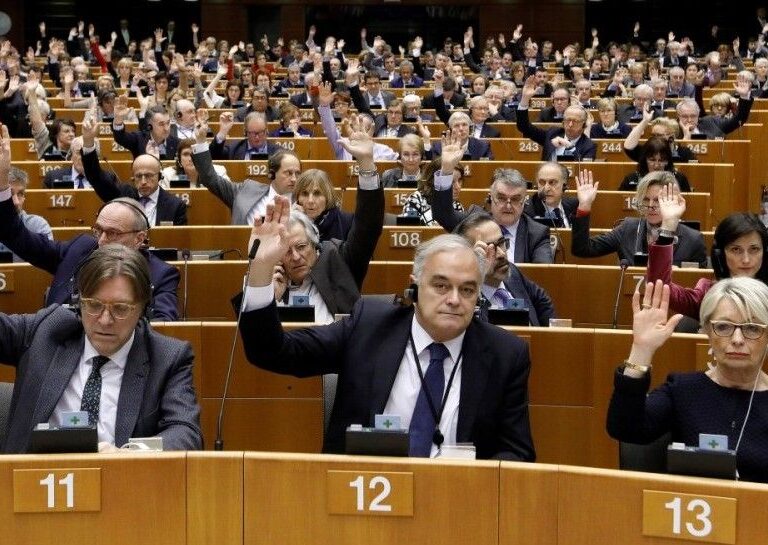At the beginning of 2024, Ukraine, in the person of President Volodymyr Zelensky, concluded a series of agreements on cooperation in the field of security at the highest level; On January 12, a corresponding agreement was concluded with the Prime Minister of Great Britain in Kyiv [1], on February 16, respectively, in Berlin and Paris, such agreements were signed with Germany [2] and France [3], on February 23 in Lviv, an agreement was signed with the Prime Minister of Denmark [4]; Such agreements were signed with the Prime Ministers of Canada [5] and Italy [6] in Kyiv on February 24, and with the Prime Minister of the Netherlands in Kharkiv [7] on March 1.
Our Association mentioned the key provisions of the relevant acts, which are obviously becoming the system of international security guarantees of Ukraine, and noted that their number will constantly increase [8]; [9]; [10]. At the same time, it is already possible to make a comparative analysis of the relevant documents, primarily in terms of their significance for the de-occupation and reintegration of the territories of Ukraine, including the occupied Crimea; PhD Anna Prykhodko tried to solve the corresponding task.
First of all, it should be noted that all the examined agreements are concluded for a period of ten years, and at the same time they provide for the possibility of further development and implementation of bilateral agreements by the parties’ authorized bodies in the development of the corresponding agreement; this prescription has an obvious programmatic nature and concerns relevant executive and technical agreements according to the spheres of cooperation, which may also include agreements regarding support for Ukraine’s measures for the de-occupation and reintegration of territories, including the temporarily occupied Crimea.
The structure of agreements on cooperation in the field of security differs to some extent, in particular with regard to the technical structuring of agreements into chapters, or articles, but it has common features that cover both technical issues of the application of agreements, their review, dispute resolution and legal force, as well as preambles (introductions). This obviously emphasizes the intention of the parties to enter into these agreements between themselves contractual obligations, which at the same time have a variable nature: a description of already existing agreements and forms of support that are already being implemented, determination of specific measures and fixation of program prescriptions for the future.
Support for the territorial integrity of Ukraine is contained in the preambles (introductions) of these bilateral agreements; it is formulated in similar sentences that contain certain differences, but primarily regarding the mention of Ukraine’s maritime territories. Thus, the Ukrainian-British agreement speaks of steadfastness in commitment to the sovereignty and territorial integrity of Ukraine within its borders, which have been internationally recognized since 1991, and the Ukrainian-Dutch agreement contains a similar sentence. The Ukrainian-German agreement speaks of Germany’s steadfastness in its support of the independence, sovereignty and territorial integrity of Ukraine within the borders internationally recognized since 1991, including the territorial sea and the free economic (maritime) zone. The Ukrainian-French agreement indicates unwavering commitment to the strategic goal of a free, independent, democratic and sovereign Ukraine within its internationally recognized borders since 1991.
The Ukrainian-Danish agreement indicates that Denmark confirms its unwavering support for the independence, sovereignty and territorial integrity of Ukraine within its internationally recognized borders of 1991, including the territorial sea, practically the same thesis is contained in the preamble of the Ukrainian-Italian agreement. The Ukrainian-Canadian agreement indicates that the parties confirm Canada’s unwavering commitment to the sovereignty and territorial integrity of Ukraine within its borders, which have been internationally recognized since 1991, including territorial waters.
References to support of Ukraine’s efforts to reintegrate Crimea are most clearly defined in the Ukrainian-British and Ukrainian-French agreements. In accordance with these norms, France and Great Britain will assist Ukraine in planning the reintegration of the temporarily occupied territories, contribute to the stabilization of vital industries and socio-economic recovery, especially in the liberated territories, front-line territories and territories bordering Russia, in promoting inclusive social recovery and meeting the needs the most vulnerable segments of the population, including measures to support women, social protection systems and veterans.
In its turn, the Ukrainian-British agreement adds that the consequences of the war, such as the liberation of the occupied territories, the transition from martial law and the need to meet public expectations, will require Ukrainian institutions to adapt properly to effectively overcome such challenges. In this dimension, it is worth mentioning the prescriptions of the Ukrainian-German and Ukrainian-Danish agreements, in which the parties agree that the recovery process should be transparent and accountable to the people of Ukraine and the international community, and the norm of the Ukrainian- Dutch agreement, according to which the authorities of Ukraine will ensure, so that support received for recovery and reconstruction purposes is spent in a manner that is efficient, transparent and accountable.
Separate agreements additionally focus on supporting territories controlled by Ukraine, for example, the Ukrainian-Italian agreement states that Italy will continue its partnership with the city of Odesa and the Odesa region in order to provide support, including financial support, in its reconstruction, stability and reforms. However, the issue of the territories occupied by Russia is heard in almost all the mentioned agreements, but in the dimension of countering crime, and it is in this context that it is further detailed. In this regard, the Ukrainian-British agreement states that Russia and its “proxies” use dangerous organized crime, in particular illegal financing, to finance actions aimed at undermining the sovereignty and territorial integrity of Ukraine, as well as its internal stability.
The agreement states that its parties will take measures to combat such crime, in particular, they will combat individuals and groups of individuals who try to infiltrate Ukrainian society, have criminal influence in certain regions, in particular in the temporarily occupied territories, and act as a tool of hybrid warfare to oppose reconstruction processes and reconciliation in Ukraine.
For the purpose of such counteraction, the parties to the agreement undertook to take measures regarding: conducting joint operations to detect and suppress such crime; analysis of the criminogenic situation in the countries and determination of the main risks caused by this crime; identification of assets that may be seized in criminal proceedings or in the case of recognition of assets as unfounded; creation of joint working groups and joint investigative groups of prosecutors and other participants; promotion of trainings and exchange of best practices, noting that these measures are not exhaustive.
The Ukrainian-German and Ukrainian-French agreements contain practically the same detailed prescriptions, the Ukrainian-Canadian agreement reproduces such mechanisms in a slightly reduced form, and the Ukrainian-Italian agreement contains a similar prescription regarding the need to counter the activities of dangerous organized crime, in particular, regarding temporarily occupied territories, but does not specify the list of measures, while separately pointing out the need to fight against illegal financial transactions aimed at undermining the sovereignty and territorial integrity of Ukraine, as well as its internal stability.
The Ukrainian-Canadian agreement on this issue speaks of mutual legal assistance within the existing instruments of international criminal cooperation with the aim of combating serious and organized crime, in particular with illegal financing aimed at undermining the sovereignty and territorial integrity of Ukraine, as well as its internal stability and the process of restoration and establishment of peace in Ukraine. This agreement reproduces the norm of countering the relevant groups that try to infiltrate Ukrainian society and are actively used as a tool of hybrid warfare to destabilize the process of recovery and peace in Ukraine.
It is worth stating that the appropriate attention to countering crime as a tool of the Kremlin is very important, and that it will be of exceptional importance for further international law enforcement cooperation; let us remind you that the Association of Reintegration of Crimea constantly, both before the beginning of the large-scale aggression of Russia and after it, informed the authorized persons of international organizations and the governments of the civilized countries of the world about the threats associated with general criminal formations under the control of the Russian invaders, which operate in Crimea and in other occupied territories of Ukraine [11]; [12]; [13]; [14]. All the considered agreements pay considerable attention to the aspects of punishing Russia for violating international law during aggression, both in terms of state responsibility and in relation to the punishment of guilty persons.
The Ukrainian-British agreement in this context says that Russia should bear legal responsibility, including providing compensation for any damage caused by such activities, which will also help deter future attacks and contribute to the recovery of Ukraine, and notes the need for accountability of those guilty of war crimes and other international crimes committed in or against Ukraine.
This is proposed to be done by supporting the work of the Office of the Prosecutor General of Ukraine and the International Criminal Court (ICC) to ensure a full and fair investigation into allegations of war crimes. Similar norms, with a mention of indiscriminate application of norms of international humanitarian law in order to prevent future crimes, are contained in the Ukrainian-German agreement, adding about the need to ensure responsibility for the crime of aggression against Ukraine and the creation of a tribunal to ensure effective responsibility. In this agreement, Germany emphasized the continuation of its participation in the work of the Coalition on the search for options for the creation of a tribunal on the crime of aggression against Ukraine, and this agreement at the same time reminds that Ukraine will ratify the Rome Statute of the ICC, including amendments on the crime of aggression.
The Ukrainian-French agreement contains similar prescriptions, but without mentioning the Rome Statute and mentioning a separate tribunal specifically regarding further work in the format of the aforementioned Coalition. The Ukrainian-Danish agreement also mentions the Coalition and, at the same time, mentions the promotion of effective domestic investigation and prosecution of international crimes in Ukraine and support for the work of the International Criminal Court.
The provisions of the Ukrainian-Italian and Ukrainian-Canadian agreements in this context are similar to the norms of the Ukrainian-British agreement regarding support for the work of the Office of the Prosecutor General of Ukraine and the ICC, and these acts also mention the said Coalition. In addition, the Ukrainian-Canadian agreement separately reminds of Canada’s leading role in the return to Ukraine of Ukrainian children who were illegally deported to Russia or forcibly relocated within the territories of Ukraine temporarily occupied or controlled by Russia.
Ukraine and Canada note in this treaty that the immediate release and return of all illegally detained, displaced and deported civilians, including children, is one of the principles of maintaining a comprehensive, just and lasting peace. This agreement emphasizes that its participants will make every effort to continue to cooperate with the International Coalition for the Return of Ukrainian Children, established on February 2, 2024 and led by Ukraine and Canada, and to achieve the goals defined in its Framework Document.
In addition, the parties to the Ukrainian-Canadian agreement undertook to contribute to international efforts to bring those responsible for organizing the illegal deportation and transfer of Ukrainian children to justice in accordance with the norms of international law and decisions of international judicial institutions, as well as to provide all necessary assistance to children and their families, victims of illegal deportation and forced displacement of Russia, with the aim of their return, reintegration and restoration of their well-being, health and well-being, which correspond to the best interests of the child.
The Ukrainian-Dutch agreement regulates the issue of criminal responsibility in the dimension of Russian aggression in quite detailed manner; it not only reproduces the relevant prescriptions regarding the ICC and the mentioned Coalition, not only states progress in the creation of a special tribunal to investigate the crime of aggression, but also indicates that Ukraine ratifies the Rome Statute, including the amendments regarding the crime of aggression. In addition, the corresponding agreement notes that Ukraine has asked the Netherlands to become a leading country in the implementation of clause 7 of the Peace Formula “Restoration of Justice”, and recalls the Framework proposals developed in accordance with this clause in September 2023, indicates the activity of the informal international Dialogue Groups on Responsibility for Crimes Against Ukraine.
Moreover, the Ukrainian-Dutch agreement states that in order to coordinate the respective efforts of the parties, the Netherlands will hold a conference at the ministerial level in The Hague in the spring of 2024 called “Restoring justice for Ukraine”. In addition to Ukraine remaining a leader in the coordination of international efforts, the Netherlands, according to this agreement, undertook to help Ukraine create the Secretariat of the Dialogue Group with the Office of the Prosecutor General of Ukraine and continue to jointly manage its work, as well as the work of the said Group.
In terms of the responsibility of Russia as a state, the Ukrainian-British agreement states that Russia must pay for the long-term reconstruction of Ukraine and states that Russian sovereign assets under the jurisdiction of the United Kingdom will remain immobilized until Russia compensates for the damage it caused to Ukraine. Great Britain, together with its partners, undertook in this agreement to continue to work out all legal ways through which the assets of the Russian Federation can be used to support Ukraine. This agreement also indicates the appropriate interaction with the G7 states, mentions the Statute of the Register of Damages Caused by Russian Aggression against Ukraine, and contains a provision on creating a compensation mechanism to provide compensation to victims of Russian aggression.
The Ukrainian-German, Ukrainian-Dutch, and Ukrainian-French agreements also contain similar norms, and the Ukrainian-Danish agreement, stating a similar approach, says about ensuring quick and adequate compensation for damages caused to the victims of aggression, almost identical prescriptions are formulated by the Ukrainian- Italian agreement.
The Ukrainian-Canadian agreement regarding similar wording adds that the options for creating and financing a compensation mechanism for victims of Russian aggression and supporting the recovery of Ukraine should include options for the confiscation and repurposing of Russian sovereign assets and should also recognize and take into account the gender dimension of losses, injuries and damages, caused by Russian aggression. All the studied agreements also operate in the categories of sanctions, countering disinformation and cyber threats from Russia.
Regarding sanctions, the Ukrainian-British agreement notes, among other things, the need to fight against all forms of circumvention of sanctions, as well as strengthening our own internal resistance to illegal financing associated with Russia and elites associated with the Kremlin. The Ukrainian-German agreement contains almost identical wording regarding sanctions, and the Ukrainian-French agreement refers to sanctions in the “European context”; so the Ukrainian-Danish agreement specified the strengthening of sanctions pressure on Russia through the European Union, the Ukrainian-Italian agreement also contains a reference to EU policy.
The Ukrainian-Dutch agreement details the relevant issues and points to active support of the EU political process aimed at further increasing pressure on Russia by developing further individual and sectoral measures and countering attempts to circumvent existing measures; under this agreement, its participants will exchange information on the effectiveness of current sanctions measures, reporting on their impact; countering circumvention schemes and exploring areas where further action could strengthen sanctions, sharing relevant enforcement information.
The relevant part of the Ukrainian-Canadian agreement deals with the prospects of an additional sanctions policy during the new aggression of Russia, and in view of the current situation, it is envisaged to expand consultations between the Ukrainian and Canadian sanctions groups, with the aim of developing joint priorities for future sanctions, exchange of research data used for developing cases regarding sanctions lists and strengthening the coordination of diplomatic contacts with third countries in order to reduce Russia’s attempts to circumvent sanctions.
Some of the studied agreements contain special features that are important in terms of the processes of deoccupation and reintegration of the Crimea. For example, the Ukrainian-British agreement refers to Great Britain leading the Maritime Security Capabilities Coalition, which should support Ukraine to become a full-fledged contributor to maritime security in the Black Sea and the Sea of Azov until 2035 and beyond. In addition, this agreement specifically mentions the active British role in supporting refugees from Ukraine, which undoubtedly includes displaced persons from Crimea.
Regarding reintegration and recovery, the Ukrainian-German agreement points to innovative approaches and digital transformation, as well as energy efficiency and the transition to “green” energy. The Ukrainian-Canadian agreement establishes a separate Canadian-Ukrainian strategic security partnership, and the Ukrainian-Netherlands agreement states that the armed conflict has caused damage to the cultural heritage of Ukraine through negligence, contempt or even targeted attacks on it motivated by malice or malicious intent; this treaty recalls the 1954 Hague Convention for the Protection of Cultural Property in the Event of Armed Conflict and the corresponding UNESCO Conference expected in April 2024.
It is obvious that the relevant agreements will play an important role in the formation of the further interstate legal and organizational structure, which is important for the de-occupation and reintegration of Crimea. In this regard, it is worth quoting the opinion of Professor Boris Babin that due to the conclusion of these agreements, “Russia now receives binding consequences for itself from the agreements of Ukraine on countering aggression, and such consequences will be clearly recognized as legitimate in international courts and organizations”.
In conclusion, it should be stated that the studied agreements have systemic features and create a single and comprehensive system of collective security, one of the key features of which is the formation of a joint approach to the mechanisms of reintegration of those territories of Ukraine, including the Crimea, which are currently occupied. The approaches of the agreements regarding the reintegration processes put the main emphasis on the issues of efficiency, controllability and transparency of the provided financial assistance, as well as on the aspects of combating organized crime, which has taken root in the occupied territories.
The reintegration dimension of the studied security agreements will probably be further revealed in the next interagency agreements drawn up for their development, it will obviously reflect the aspects of punishment for international crimes, material responsibility of the aggressor and sanctions policy that the agreements contain. The prospect of approval of new similar agreements in the near future increases the relevance of this topic for new research.
- Agreement on Security Co-operation between the United Kingdom of Great Britain & Northern Ireland and Ukraine, 12 January, 2024. URL: https://www.president.gov.ua/en/news/ugoda-pro-spivrobitnictvo-u-sferi-bezpeki-mizh-ukrayinoyu-ta-88277
- Agreement on security cooperation and long-term support between Ukraine and the Federal Republic of Germany, 16 February, 2024. URL: https://www.president.gov.ua/en/news/ugoda-pro-spivrobitnictvo-u-sferi-bezpeki-ta-dovgostrokovu-p-88985
- Agreement on security cooperation between Ukraine and France, 16 February, 2024. URL: https://www.president.gov.ua/en/news/ugoda-pro-spivrobitnictvo-u-sferi-bezpeki-mizh-ukrayinoyu-ta-89005
- Agreement on security cooperation and long-term support between Ukraine and Denmark, 23 February, 2024. URL: https://www.president.gov.ua/en/news/ugoda-pro-spivrobitnictvo-u-sferi-bezpeki-ta-dovgostrokovu-p-89185
- Agreement on security cooperation between Ukraine And Canada, 24 February, 2024. URL: https://www.president.gov.ua/en/news/ugoda-pro-spivrobitnictvo-u-sferi-bezpeki-mizh-ukrayinoyu-ta-89233
- Agreement on security cooperation between Ukraine and Italy, 24 February, 2024. URL: https://www.president.gov.ua/en/news/ugoda-pro-spivrobitnictvo-u-sferi-bezpeki-mizh-ukrayinoyu-ta-89245
- Agreement on security cooperation between Ukraine and the Netherlands, 1 March 2024. URL: https://www.president.gov.ua/en/news/ugoda-pro-spivrobitnictvo-u-sferi-bezpeki-mizh-ukrayinoyu-ta-89461
- Agreement between Ukraine and Great Britain: Strategic Legal Breakthrough, January 13, 2024. URL: https://arcrimea.org/en/news/2024/01/13/agreement-between-ukraine-and-great-britain-strategic-legal-breakthrough/
- New Agreements on Security Cooperation and De-Occupation of Crimea, February 17, 2024. URL: https://arcrimea.org/en/news/2024/02/17/new-agreements-on-security-cooperation-and-de-occupation-of-crimea/
- Ukraine has Concluded Security Agreements with Canada and Italy, February 25, 2024. URL: https://arcrimea.org/en/news/2024/02/25/ukraine-has-concluded-security-agreements-with-canada-and-italy/
- Situation with Child Sexual Abuse in the Сrimеа, 2021. URL: https://www.ohchr.org/sites/default/files/Documents/Issues/Children/SR/GA76/Association-of-reintegration-of-crimer.pdf
- Non-State Actors and Transitional Justice Processes: Сrimеа Challenges, 2022. URL: https://www.ohchr.org/sites/default/files/documents/issues/truth/nsa/2022-09-14/submission-NSAs-hrc51-academia-Association-of-Reintegration-of-Crimea-ARC.pdf
- Russian War Crimes in Ukraine: Illegal Trafficking and Sexual Exploitation of Children, 2022. URL: https://www.ohchr.org/sites/default/files/documents/ issues/children/cfi/vulnerabilities-children/csos/2022-07-26/submission-sdgs-cso-ARC-second-submission.pdf
- Russian Aggression against Ukraine, Financial Obligation and Digital Systems, 2022. URL: https://www.ohchr.org/sites/default/files/documents/issues/iedebt/digital-systems/2022-12-15/ARC_Submission.pdf







